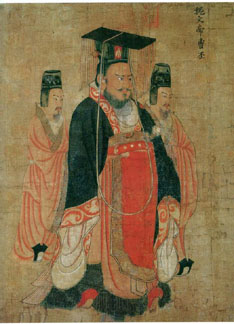Tenor aria1 from Verdi’s opera “Aïda”
Tr. YK Chan 陈耀国译

Ramades, Egyptian general, tenor
天堂般美的阿伊达 (意) 安东尼奧.吉斯兰索尼 谱词
芃尓第歌剧<阿伊达>男高音詠叹調
Se quell guerrier io fossi! 假若我是那亇战士!
Se il mio sognosi avverasse!… 假若我的夢想成真!
Un esercito di prodi 一支勇武的兵团
Da me guidato…e la vittoria… 受我指挥…又获胜利…
E il plauso di Menfi tutta! 又获全曼菲城的拥戴!
E a te, mia dolce Aïda, tornar 与及你阿伊达,让我回到你可爱的身旁
Di lauri cinto… 戴着橄欖冠…
Dirti: per te ho pugnto, 我告诉你:我为你而战,
Per te ho vinto! 为你获胜!
Celeste Aïda, forma divina, 天堂般美的阿伊达,天赐的形象,
Mistico serto di luce e fior, 神秘光辉花环,
Del mio pensiero tu sei regina, 你是我思念中的女皇,
Tu di mia vita sei lo splendor. 你是我生命的光彩。
Il tuo bel cielo vorrei ridarti, 我会还你可愛晴空,
Le dolci brezze del pario suol; 和你乡土上的和风;
Un regal serto sul crin posarti, 给你戴上髮顶的皇冠,
Ergerti un trono vicino al sol. 给你迠立邻近太阳的皇座。
____________________________________
1 Sung by the Canadian tenor, Jon Vickers: http://www.youtube.com/watch?v=5Nsi3kGjxnE
By the Swedish tenor Jussi Björling:
http://www.youtube.com/watch?v=UsVIWXEw8EE
Trivia: Sophia Loren played the title role of the Ethiopian princess, Aïda, in a 1953 Hollywood film. See http://www.imdb.com/title/tt0045483/

